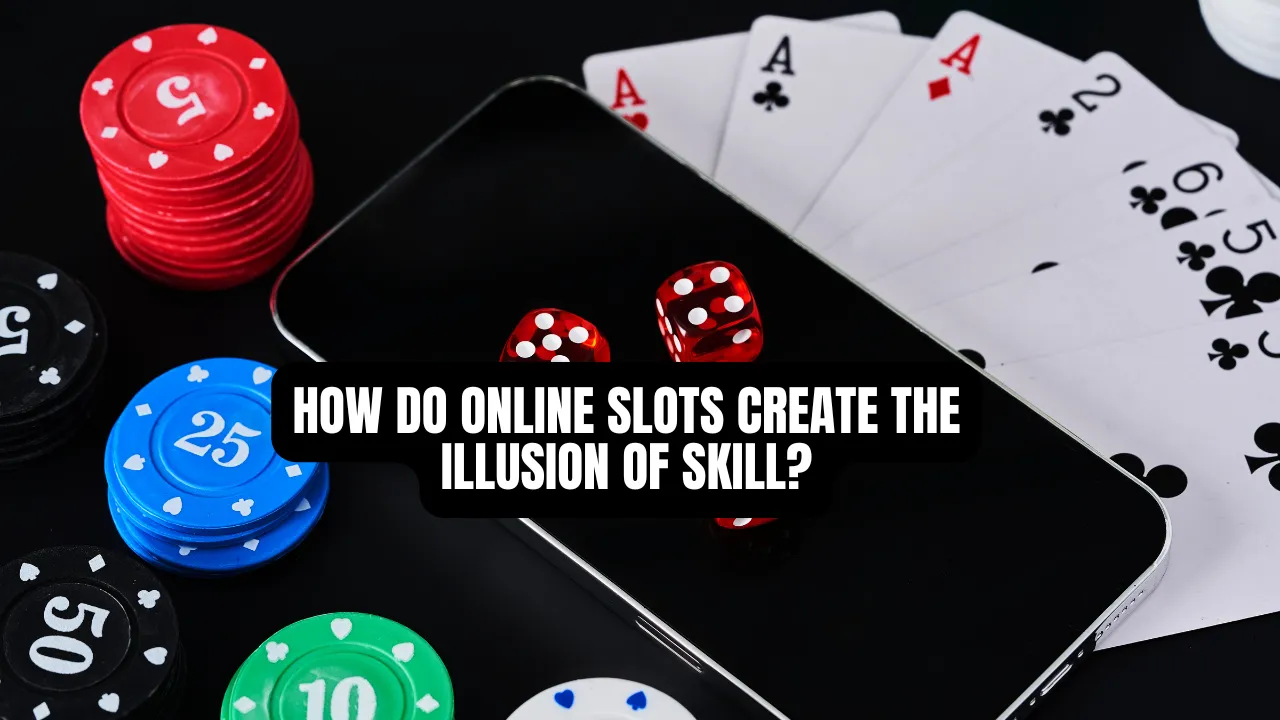Online slots are some of the most popular games in digital casinos, and it’s easy to see why. They’re colorful, fast-paced, and filled with flashing lights and engaging sounds. But beneath the surface of spinning reels and dramatic animations, slots are primarily games of chance. Despite this reality, many players come away with the feeling that their choices or actions have influenced the outcome. This is no accident. Online slots are carefully designed to create the illusion of skill, keeping players engaged and entertained for longer sessions.
As someone who has researched casino design trends and observed how online platforms develop their games, I’ve noticed a fascinating blend of psychology, technology, and marketing at play. Let’s break down the mechanics behind this illusion and why it continues to captivate millions worldwide.
The Role of Near Misses in Player Perception
One of the most common techniques used by slot developers is the near miss. A near miss occurs when a player spins the reels and lands just short of a winning combination — perhaps two jackpot symbols line up, with the third symbol stopping just one position away.
From a mathematical perspective, this is no different from any other losing spin. Yet psychologically, near misses activate the brain’s reward system almost as strongly as an actual win. Players interpret it as being “close” to success, much like missing a basketball shot by inches. This effect makes them feel as though their timing or decisions could change the outcome next time, feeding the illusion of skill.
Interactive Features and Bonus Games
Another powerful method used to create this illusion lies in bonus rounds and interactive features. Many online slots now include pick-and-click games, free spin rounds, or “wheel of fortune” style events. During these moments, players are asked to make choices: pick a treasure chest, select a card, or spin a digital wheel.
Although the results are still determined by a random number generator (RNG), the act of making a choice feels like exercising skill. It taps into the same psychological patterns we see in video games, where choices directly influence outcomes. This interactivity blurs the line between pure chance and perceived control, keeping players more engaged.
The same principle explains why themed slots — whether based on movies, mythology, or adventure stories — are so effective. They create a narrative where the player feels like an active participant, not just a spectator pressing a button.
Linking the Illusion to Real-World Behavior
The illusion of skill isn’t confined to the digital world. If you’ve ever walked through a land-based casino, you’ve probably seen players slapping buttons, timing spins, or carefully choosing machines. None of these actions actually change the RNG that determines the results, but they give players a sense of agency.
Online slots have simply taken this human tendency and amplified it through design. By layering interactivity, sound effects, and carefully programmed visual cues, developers encourage behaviors that reinforce the illusion of control.
This is also why many players who explore non uk casinos find slot games familiar across different jurisdictions. Whether licensed in one region or another, the mechanics of near misses, bonus rounds, and interactive choices are universally applied to keep engagement levels high. The sense of skill is more about design than geography.
The Power of Sound and Visual Feedback
It’s impossible to discuss the illusion of skill without acknowledging the role of sensory design. Sound effects in slots are crafted with precision — celebratory jingles for small wins, dramatic tones for near misses, and escalating audio cues during bonus rounds. These sounds make even minor wins feel like significant achievements, reinforcing the belief that a player is “doing something right.”
Visuals work the same way. Flashing lights, animations of coins pouring onto the screen, and characters celebrating all contribute to the perception that outcomes are tied to player interaction. Even when wins are small — sometimes less than the original bet — the sensory celebration makes them feel meaningful. This is often referred to as a “loss disguised as a win.”
Variable Rewards and Reinforcement
One of the reasons slots are so addictive is their use of variable reward schedules, a principle rooted in behavioral psychology. Players never know exactly when a win will come, but they know it will happen eventually. This unpredictability keeps them spinning, much like how social media notifications or video game loot boxes operate.
When you combine variable rewards with near misses, interactive choices, and sensory feedback, the overall experience feels more dynamic than a simple game of chance. The brain interprets these patterns as evidence of skill or strategy, even when none exists.
The Thin Line Between Entertainment and Misconception
While the illusion of skill makes online slots more entertaining, it can also mislead players into believing they have control over outcomes. This is where responsible gaming measures become essential. Regulators often require disclaimers that all slot results are random, and many platforms now offer tools like spending limits and time reminders.
For players, the key is recognizing the difference between entertainment and strategy. Slots are designed for fun, not as a pathway to guaranteed wins. Understanding how the illusion of skill works can help players enjoy the experience without falling into misconceptions about their level of control.
The Future of Slot Design
Looking ahead, the illusion of skill is likely to become even more sophisticated. Developers are experimenting with augmented reality (AR), skill-based bonus rounds, and hybrid games that blend chance with genuine decision-making. These innovations could make future slots even more interactive, while still relying on RNG for core outcomes.
The challenge for regulators and casinos will be balancing innovation with transparency. As games become more immersive, it will be increasingly important to ensure players understand the boundaries between entertainment and actual skill.
Conclusion
Online slots masterfully weave together psychology, sensory design, and interactivity to create the illusion of skill. Near misses, interactive features, and carefully designed sound and visual effects all contribute to a sense of control that keeps players engaged.
While it’s important to remember that outcomes are always random, understanding the mechanics behind this illusion can make playing slots more enjoyable — and perhaps even more fascinating. After all, part of the fun lies in feeling like you’ve influenced the reels, even when you haven’t.








